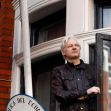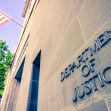This week, the Supreme Court agreed to hear a case on whether the U.S. government can block a Guantanamo Bay detainee from obtaining information for a criminal investigation. This subpoena has previously been denied by lower courts citing State Secret Privilege due to the information potentially harming national security.
Zayn al-Abidin Muhammad Husayn, more commonly referred to as Abu Zubaydah, was born in Palestine but raised in Saudi Arabia. He was captured in 2002 following the September 11, 2001, terrorist attacks on the United States. At the time, United States intelligence believed that Abu Zubaydah was a high-level al-Qaeda member with an exclusive communication line to Osama Bin Laden. A 2014 report from the Senate Select Committee on Intelligence revealed that they were incorrect and that Abu Zubaydah was not a member of al-Qaeda at all.
Shortly after being captured in Pakistan in 2002, he was first transferred to Thailand and later to several other C.I.A. black sites around the world. While in these black sites Abu Zubaydah was subjected to waterboarding at least 83 times, along with sleep deprivation, forced nudity, and more. In 2006 he was transferred to Guantanamo Bay, Cuba, after more than four years in C.I.A. custody in these black sites located around the world.
In 2010, lawyers for Abu Zubaydah filed a criminal complaint in Poland “seeking to hold Polish officials accountable for their complicity in Abu Zubaydah’s unlawful detention and torture on Polish soil.” Poland was just one of the several black sites where Abu Zubaydah was held and tortured after he was captured in 2002.
After the Polish government provided no information or explanation, lawyers representing Abu Zubaydah moved to subpoena the U.S. government directly, requesting information on the contractors who were assigned to interrogate Abu Zubaydah.
James E. Mitchell and Bruce Jessen, two psychologists and former C.I.A. contractors, were both hired to develop a list of the torture techniques to be used by the C.I.A in black sites around the world following the September 11 terror attacks. Their list of techniques is often referred to as “Enhanced Interrogation Techniques” or EITs. In 2002, the two contractors were assigned to apply their EITs on Abu Zubaydah in order to retrieve information on al-Qaeda and gain access to its higher-ranking members.
In 2017, a federal judge blocked the subpoena requested by Abu Zubaydah, saying that “proceeding with discovery would present an unacceptable risk of disclosing state secrets.” Then, in 2019, a three-judge panel of the United States Court of Appeals for the Ninth Circuit ruled that it could be possible to provide the relevant material for the case and still protect state secrets. However, the full circuit of 12 judges refused to re-hear the panel’s decision still calling it “a serious risk to our national security.”
The State Secrets Privilege allows the U.S. government to block any disclosure of information that they deem could harm national security. The court case United States v. Reynolds (1953) formally recognized the state secret privilege and set out a two-step procedure to evaluate a claim of the privilege by the United States. First, the government must formally claim the privilege, usually done by the head of the department that holds the information or the matter. Second, the court then has to independently determine whether the situation and circumstances of the case are appropriate for the government to claim that privilege.
In March 2021, in a continuation of the Trump administration’s policy, the Biden administration requested the Supreme Court to intervene in this case, saying “the identities of its foreign intelligence partners and the location of former CIA detention facilities in their countries” must be protected.
Abu Zubaydah has been held by the United States for a total of almost twenty years as a “law of war detainee,” deemed “too dangerous to release.” He has yet to be charged or tried and is currently held at the Guantanamo Bay prison as the only Palestinian at the prison camp.






